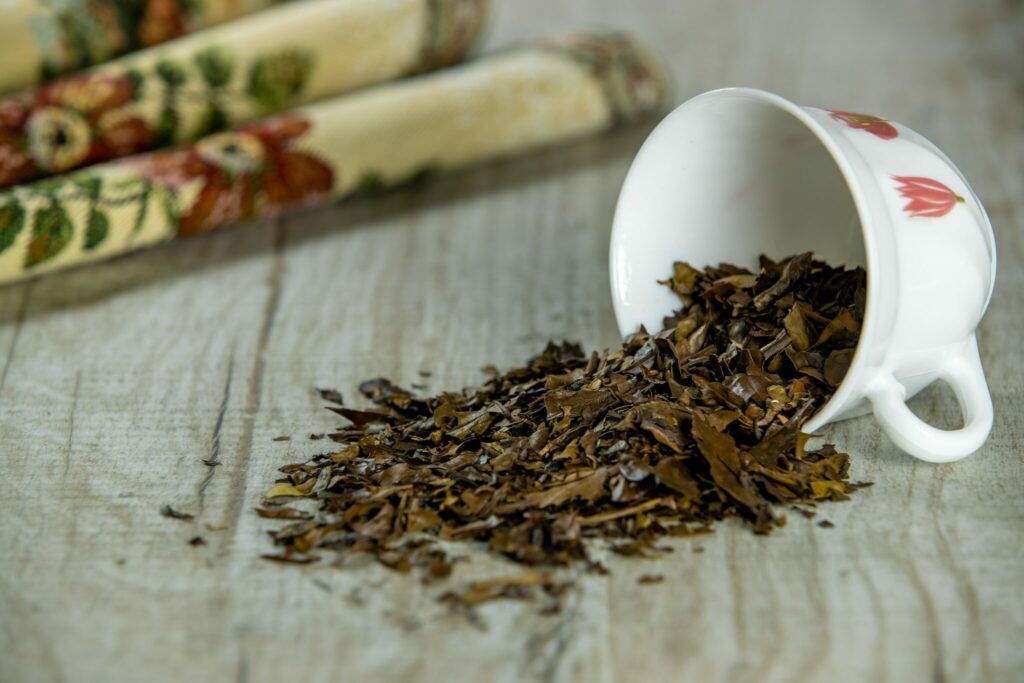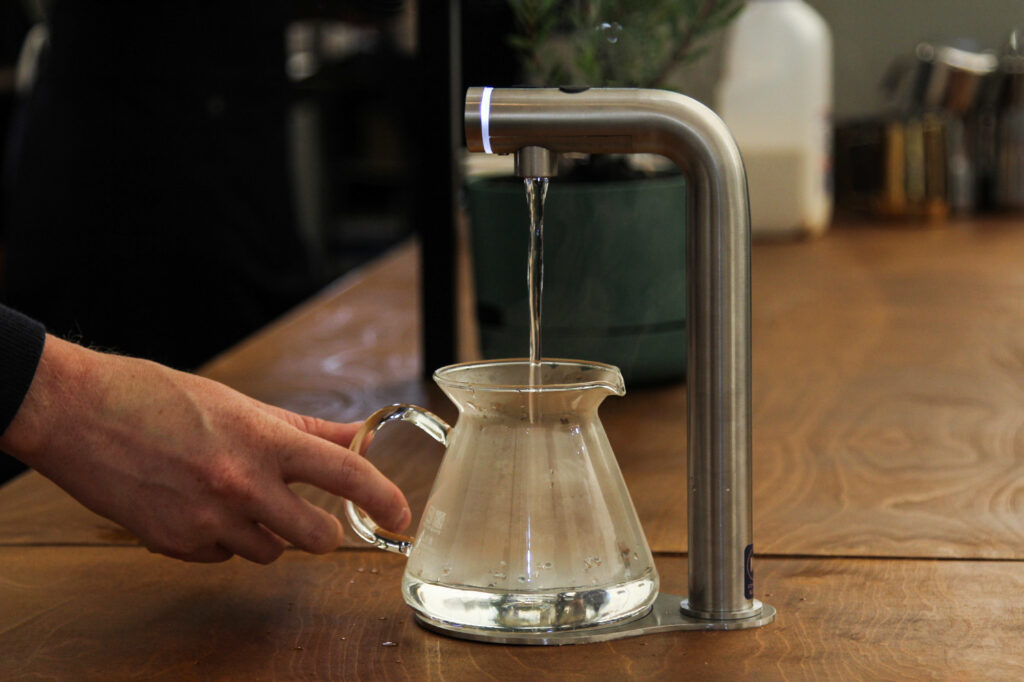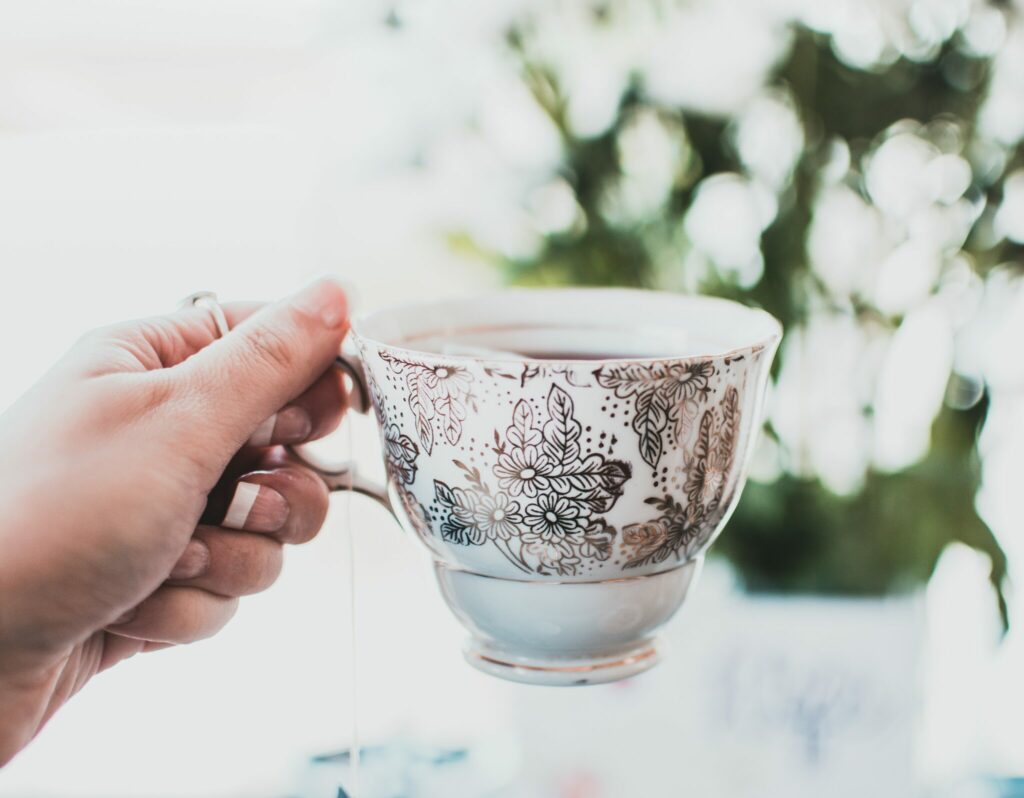Guest Blogger: Kiona Malinka, Tea Sommelier, Crusio Thee & Kiona Malinka Tea
The Differences Between Tea and Coffee Knowledge and Brewing Equipment
As a barista, my goal has always been to serve the perfect coffee from a coffee order for that moment, for that guest. You can do something exceptional and special with something as small as a coffee. I also wanted to do this with tea, but I couldn’t at the time. Why? I think a combination of lack of knowledge, perhaps interest, and appropriate brewing equipment and focus. Now, 12 years later, I have devoted my entire working life to tea and only rarely touch a portafilter. In this blog, I will take you along in my observations about the differences or perhaps the similarities between coffee and tea, from brewing to equipment, margins to health benefits.
Tea and Coffee Brewing
You notice something interesting when you compare the differences between the brewing process and equipment for coffee and tea. Espresso preparations require a lot of equipment. A good machine, a good water filter, a coffee grinder, and some smaller tools such as a scale. To make a good cappuccino or a good espresso, you have to get started with these machines and give the beans the right treatment in a combination of knowledge, practical skills, and vision.
The same actually applies to filter coffee. Which of the numerous methods are you going to choose for which bean, which tones do you want to get from the coffee? Do you want to spend the time and focus with a hand pour-over, or consider an automated system like the Marco SP9?
As a barista, you can use a water boiler for your water supply as a filter that allows your water or coffee to flow at the desired temperature. This boiler can also be used very well for tea. To brew tea you need a recipe, and for that, you need an ultra-precise scale and precise water temperature.
The method of preparing tea can be done in all kinds of ways, just like with filter coffee, from traditional Chinese, Japanese, or maybe just an English pot. The nice thing is that if you want to prepare tea in a good way as a barista, in many cases, it takes less action than a cappuccino or filter coffee.
Tea and Coffee Knowledge
As a barista, knowledge is really the key to a good cup of coffee and helps to find the most appropriate brewing equipment. Without knowledge, you can still have such a beautiful machine or such a great coffee but getting a good extraction from a bean is only possible if you know how it works! But like a Lamborghini without a driver’s license, it remains a difficult story. It is the same with tea. With some skills, you can already transform a fresh, beautiful tea into a beautiful, challenging, and balanced cup. Fortunately, the world of education and tea, just like with coffee, does not stand still and nowadays, there is a comparable training course such as the Specialty Coffee Association (ed. SCA), where you can refresh your knowledge in the field of tea called European Specialty Tea Association (ed. ESTA).
Tea and Coffee Equipment and Tools
The best thing about being a barista? Apart from those tasty shots that can surprise and challenge you time and time again, those beautiful machines and cool gadgets that are constantly being developed further is the icing on the cake.
For tea, you often see that apart from a tea jug or strainer and here and there a scale is not done very wildly in the field of machines and tools! But this just makes it easy and fun. A system like the Marco MIX, which allows users to set three different temperatures and volumes, is perfect for the barista who wants to brew the best quality tea, at the correct temperature. A system like FRIIA allows baristas to brew tea but also introduces cold and sparkling water, giving a barista opportunity to play, experiment and explore different types of tea flavours and beverages such as iced or sparkling teas. The right machine can help you improve your tea making skills and keep them constant.
Specialty Tea and Specialty Coffee Brewing Equipment
The time of coffee without transparency in terms of origin and roaster, and dates is behind us. And it is still wonderful that, as a drinker or barista, you know what you are drinking and buying. Tea is at the beginning of that movement. As a barista, you naturally also want to tell the tea drinker which farmer is behind that delicious floral oolong or behind that powerful Ceylon. Just like specialty coffee, specialty tea is a movement, a philosophy, a way of working and living. We recognize that so well with coffee, and if you look at tea in the same way, you will see that it has so many similarities! Challenge your supplier to find the tastiest things for you in the season with a transparent story that you can tell guests in scents and colours!
Margins
Now we come to quite an important question: is there any money to be made with tea? If you use loose-leaf tea and you make a strict recipe, you always have the same ratio of tea leaves and water. This was previously not really a topic with bags, so you often saw that for a bag, you sometimes got a pot or a huge glass, but then the ratio is, of course, completely lost. So that recipe will ensure that you have knowledge about the costs of each cup.
You can of course go all out and choose the most expensive types of tea, but if you choose a decent fresh tea in the specialty tea category, the price can be between 30 and 50 cents per serving depending on the type, quality, and availability, then you can really choose a lot of things. Then we are talking about a size glass that is 160 ml, so not a mug of 1 litre. The more ml you want to serve, the more tea you need and there is a limit on what you can ask for a cup. So, if you ask me? Choose a smaller cup, or better tea, and ask for a good price for it. Then there is a big margin on tea, and everyone will be happy.
Health Benefits of Tea vs. Coffee
The caffeine in coffee and tea is not that different. However, there are differences that are important. Tea contains more than just caffeine. These substances provide a balance, as it were, between the boost that caffeine can give and the peace that tea can bring you. The delivery to your body is also slightly different, you will benefit from it in a calmer way for a longer period of time. In coffee, you get that delicious well-known caffeine rush, but after a while, it goes away, and you can still use a shot! So now it happens more than ever that real coffee drinkers sometimes alternate the coffee or even replace it with a cup of tea at times. No caffeine at all? Then choose herbals. Herbal infusions are becoming increasingly important on the menu and can be a good substitute for tea or coffee!
Conclusion? Tea and coffee are more alike as we might think and use your imagination about how Speciality tea can get a roll in the brewing life of a barista!



